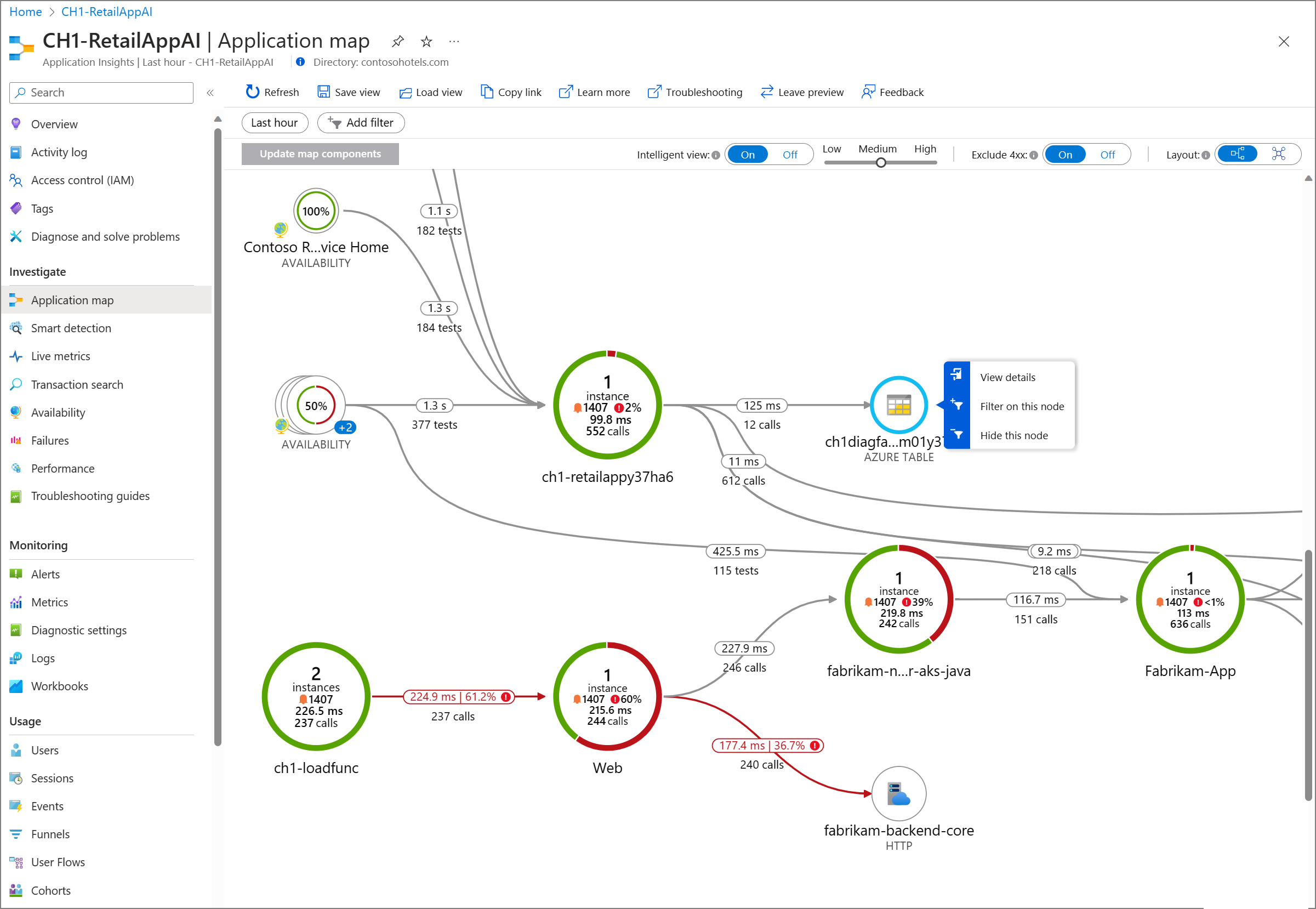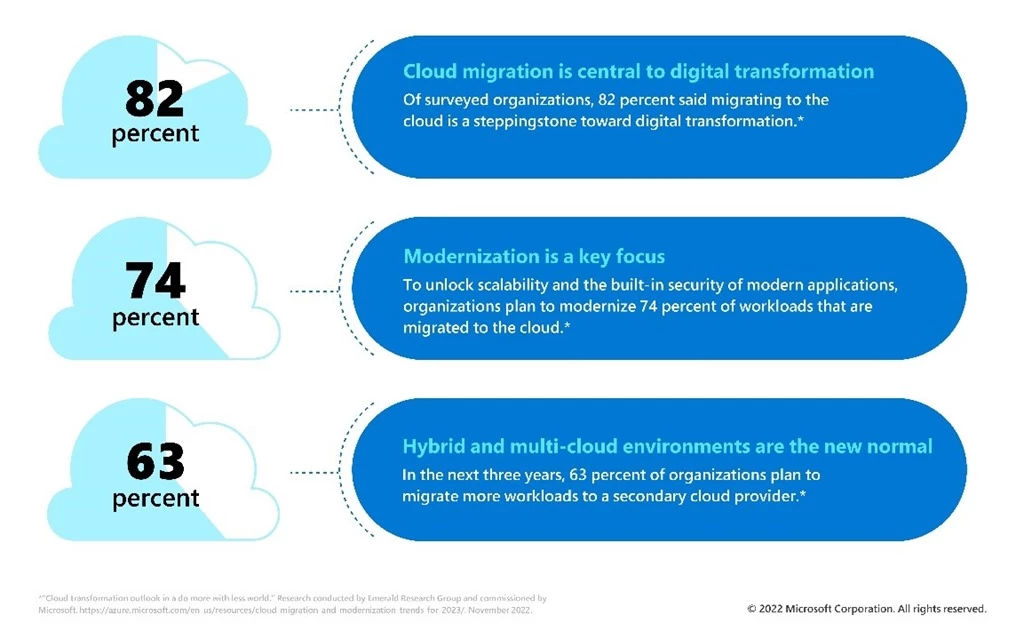Recap of key insights of Web Hosting Database Trends: Web hosting ensures that your website stores and makes its data accessible online. Databases are essential for organizing and retrieving that data efficiently.
Also Read
Any online presence must understand the link between web hosting and database management. Great web hosting affects speed, uptime, and scalability. These are key for user experience and SEO. Databases, usually SQL or NoSQL, store your site’s content and user information.
Websites must be robust and reliable to support dynamic content and user interactions. Good websites need reliable web hosting and optimized databases. They create a solid foundation.
It enhances performance and supports traffic growth. The importance of digital presence continues to grow. The synergy between these components has a direct correlation with online success.
Table of Contents of Recap of Key Insights of Web Hosting-Database
Recent Shifts In Web Hosting
The digital landscape never stays still, and web hosting trends are no exception. The recent shifts in this dynamic sphere continue to shape our online experiences. They power websites and store data. Let’s dive into the latest movements revolutionizing web hosting.
Movement Toward Cloud-based Solutions
Cloud hosting has taken center stage in the hosting arena. The cloud offers flexibility, reliability, and scalability. This shift is due to the growing demand for data and applications that people can access on many devices.
As businesses grow, the ease of adjusting resources in real time becomes key. Here are some core benefits of the transition to cloud-based solutions:
- Scalability: Adjust resources based on current needs.
- Cost-effectiveness: Pay only for the resources you use.
- Performance: Enhanced speeds and uptime.
- Security: Improved safeguards against data breaches.
Rising Importance of Green Hosting
The push for sustainability is reshaping the web hosting ecosystem. Green hosting emerges as a pivotal concern among environmentally-conscious stakeholders. This eco-friendly approach minimizes the carbon footprint of servers and promotes energy efficiency. Key factors driving the green hosting trend include:
- Renewable energy: Use of wind, solar, and hydropower to run data centers.
- Carbon offsetting: Investment in environmental projects to balance emissions.
- Energy-efficient hardware: Advanced technology for lower power consumption.
- Cooling systems: Innovative designs to keep servers at optimal temperatures.
Embracing this green initiative serves a dual purpose: it protects the planet and resonates with eco-aware clients.

Credit: learn.microsoft.com
Database Trends Reshaping The Industry
Let’s dive into the Database Trends Reshaping the Industry.
These trends are changing how we store and manage data.
Popularity of Open-source Databases
Open-source databases have caught everyone’s eye.
They offer flexibility and cost savings that appeal to businesses.
Big players like MySQL and PostgreSQL lead the pack.
Their strong community support drives their growth.
- MySQL’s user-friendliness wins over developers.
- PostgreSQL’s advanced features target enterprise needs.
Small companies can now access powerful database tools.
Adoption of Database As A Service (DBaaS)
DBaaS is rising as a go-to solution for database management.
It simplifies setting up and maintaining databases.
Businesses get to focus on their core products, not database management.
| DBaaS Benefit | Description |
|---|---|
| Cost-Effective | Pays for only what you use. |
| Scalable | Easily scales with business growth. |
| Managed Service | Experts handle the technical details. |
Popular platforms like Amazon RDS and Google Cloud SQL pioneer in this space.
Impact of Artificial Intelligence
Artificial Intelligence (AI) has been a game-changer in many technology sectors. The evolution of AI led to this change. Its influence extends to web hosting and database management. It streamlines operations, improves efficiency, and enhances user experiences. The following sections dive into the specifics of how AI is making an impact.
Automated Database Management
AI-driven automation is revolutionizing database management. It simplifies tasks that were once labor-intensive. Let’s explore the benefits:
- 24/7 monitoring: AI systems keep an eye on databases around the clock, ensuring high availability and reliability.
- Anomaly detection: Machine learning algorithms detect and respond to unusual patterns that could indicate cyber threats or system failures.
- Performance optimization: AI tools analyze and enhance database performance, automatically adjusting resources to the current workload.
- Backup and recovery: Automated processes ensure data is safely backed up, and recovery is swift and reliable.
Ai In Web Hosting Optimization
Web hosting experiences a major uplift with AI integration. See how AI empowers hosting services:
- Load management: AI predicts traffic surges and manages server loads to prevent downtime.
- Security measures: Advanced AI security protects websites from malicious attacks and breaches.
- Customer support: AI chatbots provide instant help, improving user satisfaction.
- Resource allocation: AI algorithms dynamically allocate resources where needed, enhancing site performance.

Credit: enhancv.com
The Growth Of Edge Computing
Edge Computing marks a transformative leap in how data journeys across networks. As we embrace this evolution, web hosting and databases witness a major shift. Edge Computing brings data processing closer to the end-user.
The benefits are vast. They include speed, efficiency, and improved experiences. Let’s explore key insights of this progression. We will focus on Edge Hosting and Database Storage.
Edge Hosting For Reduced Latency
Edge Hosting plays a pivotal role in minimizing delay. It means quicker data delivery. Users enjoy seamless online interactions. Websites and applications respond in the blink of an eye. Providers now deploy servers at strategic locations near users. These regional nodes ensure rapid content loading, game-changing for industries reliant on speed.
Implications For Database Storage And Access
Edge Computing reshapes Database Storage and Access. It offers a novel approach to handle data. Traditional central databases evolve. Now, fragmented storage ecosystems emerge. They distribute data across multiple edge locations. This setup guarantees faster access and robust security. It benefits real-time applications and services significantly.
| Benefit | Description |
|---|---|
| Speed | Data travels less distance. Response times drop dramatically. |
| Efficiency | Localized data processing. It reduces bandwidth use and costs. |
| Experience | Users encounter fewer delays. Satisfaction climbs. |
- Immediate Insights: Real-time data analysis at the edge.
- Localized Actions: Quicker decision-making processes.
- Decreased Congestion: Lowered network traffic.
- Analyze data flow requirements.
- Select strategic edge locations.
- Deploy localized servers.
- Integrate with core systems.
- Monitor and optimize performance.
Security Concerns And Solutions
In the digitized realm, web hosting and database management are the spine of online operations. However, they are riddled with security issues. Cyber threats are an evolving challenge. It’s vital for businesses to bolster defenses.
Upgrades in security measures keep data safe and maintain user trust. Let’s explore some advanced security protocols for web hosting and database systems.
Enhanced Protective Measures For Web Hosts
Web hosts carry the responsibility of safeguarding client websites. As attacks grow more sophisticated, web hosts must adapt. To shield against risks, several enhanced protective measures play a crucial role.
- Firewalls – They act as the barrier against unauthorized access.
- Malware Scanning – Regular scans detect malicious software early.
- DDoS Protection – Defends the server from overwhelming traffic attacks.
- Security Patches – Timely updates fix vulnerabilities in server software.
Advanced Database Encryption Techniques
Databases hold the essence of sensitive information. Protecting this data is paramount. Encryption is the key. It turns data into unreadable code for unauthorized users. Here are some top encryption techniques:
- Transparent Data Encryption – It encrypts data at rest, preventing data extraction from physical theft.
- Column-level Encryption – Targets sensitive columns for encryption within a database, giving finer control.
- Encrypted Backups – Ensures even copies of the database are not left unprotected.
- SSL/TLS Encryption – Securely transfers data between servers and clients over the internet.
Predictions For The Near Future
As we peer into the horizon of web hosting and databases, certain trends stand out. These trends suggest exciting changes ahead. With technology advancing rapidly, here’s what we can anticipate.
Continued Expansion Of Cloud Hosting
Cloud hosting is set to grow even bigger. More businesses will store data online. Comfort with the cloud is increasing, and costs are decreasing. Users will enjoy faster and more reliable websites as a result. This expansion impacts website uptime and data accessibility, enhancing user experience.
- Greater storage options at lower costs
- Integration of advanced security measures
- Improved data management systems for businesses
Innovations In Database Scalability And Performance
Databases will become more powerful. They will handle more data and traffic with ease. Technological breakthroughs will ensure databases are more scalable, adapting to the needs of growing businesses. Performance boosts will make data retrieval lightning-fast.
| Feature | Improvement |
|---|---|
| Speed | Faster queries and transactions |
| Flexibility | Dynamic scaling options |
| Efficiency | Optimized resource usage |

Credit: azure.microsoft.com
What are Databases in Web Hosting?
Web hosting databases are vital. They store and manage data for websites and apps. They structure information for efficient data retrieval, manipulation, and storage. Web hosting commonly uses two types of databases. Relational databases, like MySQL and PostgreSQL, store data in tables. NoSQL databases, like MongoDB, handle unstructured data.
What is the Overview of Hosting Services?
Web hosting services provide the infrastructure to make websites accessible on the internet. These services store your website’s files, images, and data on servers that are connected to the internet.
There are various types of hosting services. They include:
- Shared hosting, where multiple websites share a server’s resources.
- VPS hosting, which offers more dedicated resources.
- Dedicated hosting, where an entire server is reserved for one website.
Each type of hosting service meets different needs and budgets. It ensures that websites run smoothly and efficiently.
What is the Objective of Web Hosting?
Web hosting’s main goal is to make websites accessible to users worldwide. Web hosting services enable websites to be online 24/7. They do this by providing server space and the necessary technology.
This includes maintaining server uptime, implementing security measures, and ensuring fast load times. Web hosting provides a secure, reliable environment for websites. This boosts user experience and supports the site’s goals.
I hope these insights help your readers understand web hosting and databases. If you have any specific topics you’d like to delve deeper into, feel free to ask!
References
[1] What Is Database Hosting? How Database Hosting Powers Applications [2] What Is a Database and How Is It Used in Web Hosting? [3] What is web hosting? Complete guide for beginners – GoDaddy [4] What is Web Hosting and How Does it Work? – CNET [5] What Is Web Hosting – Web Hosting Explained for Beginners [6] What Is Web Hosting + Why Do I Need it? – Web.comRecap of key insights of Recap of key insights of Web Hosting Database Trends?
What Is The Basic Overview Of Web Hosting?
Web hosting is a service. It lets organizations and individuals post a website or web page onto the Internet. Hosting providers allocate space on servers for websites to store data. This makes the websites accessible online through a unique domain name.
What Is The Purpose Of Web Hosting?
Web hosting provides a server to store website data, making it accessible online. It ensures websites are available for visitors 24/7.
What Is Database In Web Hosting?
A database in web hosting is a structured collection of data. It supports a website’s functions. It’s often stored on a hosted server for easy access and management.
Why Is Hosting A Website Important?
Hosting a website is crucial. It makes your site accessible online. It ensures it loads quickly and reliably for visitors. It provides the necessary resources and security for your website’s smooth operation.
Conclusion on Recap of Key Insights of Web Hosting Database Trends
Navigating the terrain of web hosting and databases can seem daunting. Yet, this guide provides the compass for success. Mastering these concepts is key to a robust online presence. We’ve covered key tips and pitfalls to avoid. Now, you can make informed decisions.
Embrace these insights, and watch your website thrive in the digital ecosystem.













21 comments
I reckon something genuinely interesting about your blog so I saved to favorites.
helloI really like your writing so a lot share we keep up a correspondence extra approximately your post on AOL I need an expert in this house to unravel my problem May be that is you Taking a look ahead to see you
Your blog is a breath of fresh air in the often stagnant world of online content. Your thoughtful analysis and insightful commentary never fail to leave a lasting impression. Thank you for sharing your wisdom with us.
Thinker Pedia I am truly thankful to the owner of this web site who has shared this fantastic piece of writing at at this place.
Bitcoin Accelerator This tool is designed to prioritize your transaction, ensuring it gets confirmed faster on the network. It’s an essential resource for anyone looking to optimize their Bitcoin experience. Don’t let slow confirmations hold you back; discover the benefits of using an accelerator today!
Meilleur hébergement web avec un nom de domaine .MA gratuit Lancez votre site chez Anvixa Maroc https://anvixa.ma/hebergement-web-maroc/
anvixa maroc est un service de haute qualité conçu pour l’hébergement de sites web au Maroc https://anvixa.ma/hebergement-web-maroc/
Distributeur de la marque jofel au maroc
Как создать аккаунт на Binance
Binance — одна из крупнейших и самых надежных криптовалютных бирж в мире. Независимо от того, являетесь ли вы новичком в криптотрейдинге или опытным инвестором, создание аккаунта на Binance — это просто и быстро. Следуйте этому пошаговому руководству, чтобы настроить свой аккаунт и начать торговать.
Шаг 1: Перейдите на сайт Binance
Откройте браузер и посетите официальный сайт Binance.
Убедитесь, что вы находитесь на правильном сайте, чтобы избежать фишинговых атак. Проверьте наличие значка замка рядом с URL, чтобы убедиться в безопасности.
Шаг 2: Зарегистрируйтесь для создания нового аккаунта
На главной странице нажмите на кнопку “Регистрация” в правом верхнем углу.
Выберите, хотите ли вы зарегистрироваться, используя электронную почту или номер телефона, чтобы создать аккаунт Binance.
Шаг 3: Заполните регистрационную информацию
Введите свою электронную почту или номер телефона.
Создайте надежный пароль для своего аккаунта, используя сочетание букв, цифр и символов.
Примите Условия использования Binance, поставив галочку.
Нажмите кнопку “Создать аккаунт”, чтобы продолжить.
Шаг 4: Пройдите проверку безопасности
Binance предложит вам выполнить защитный пазл, чтобы подтвердить, что вы не робот. Перетащите элемент пазла на нужное место.
Если вы зарегистрировались с электронной почтой, Binance отправит код подтверждения на вашу почту. Введите этот код на сайте Binance.
Шаг 5: Включите двухфакторную аутентификацию (необязательно, но рекомендуется)
Для дополнительной безопасности Binance рекомендует включить двухфакторную аутентификацию (2FA).
Вы можете выбрать Google Authenticator или SMS-аутентификацию для этой цели.
Чтобы настроить 2FA, следуйте инструкциям для связывания своего аккаунта Binance с приложением Google Authenticator или номером телефона.
Шаг 6: Подтвердите свою личность (KYC)
В зависимости от вашей страны и суммы, которую вы планируете торговать, Binance может потребовать пройти проверку личности (KYC).
Для прохождения KYC вам потребуется предоставить личную информацию, такую как:
Полное имя
Адрес
Удостоверение личности, выданное государством (паспорт, водительское удостоверение или национальный ID)
Загрузите необходимые документы и следуйте инструкциям на экране.
Binance проверит ваши данные, и процесс проверки обычно занимает от нескольких минут до нескольких часов.
Шаг 7: Пополните счет и начните торговать
После настройки и проверки аккаунта вы можете пополнить счет.
Перейдите в раздел “Кошелек” и выберите “Пополнение”.
Вы можете пополнить счет фиатной валютой (USD, EUR и др.) через банковский перевод или кредитную карту, или можете сразу внести криптовалюту, если она у вас уже есть.
После пополнения счета вы можете начать торговать на платформе Binance!
Заключение
Создание аккаунта на Binance — это быстро и легко, особенно если вы следуете приведенным выше шагам. С использованием таких мер безопасности, как двухфакторная аутентификация и проверка личности, вы можете торговать с уверенностью на одной из крупнейших криптовалютных бирж в мире.
Удачной торговли!
Thanks for this very informative article! For anyone looking for a detailed step-by-step guide on creating a Binance account, here’s a helpful resource I found: How to Register an Account on Binance. Hope it’s useful!
Thanks for this very informative article! For anyone looking for a detailed step-by-step guide on creating a Binance account, here’s a helpful resource I found: How to Register an Account on Binance. Hope it’s useful!
I’m really impressed with your writing skills as well as with the format in your weblog. Is this a paid topic or did you modify it yourself? Either way stay up the nice quality writing, it is rare to peer a nice weblog like this one today..
guide to creating a Binance account Step-by-step : https://www.binance.com/en/support/faq/how-to-register-on-the-binance-website-08f314ad219e45fc9b7a27b67801a5c4?ref=775587485
How to Register an Account on Binance https://www.binance.com/en/square/post/15710503553490?ref=775587485
Create binance account : https://www.binance.com/en/square/post/15710503553490?ref=775587485
How to Register an Account on Binance in India
How to Register an Account on Binance in the United States
How to Register an Account on Binance in Canada
How to Register an Account on Binance in Australia
How to Register an Account on Binance in the United Kingdom
How to Register an Account on Binance in Singapore
How to Register an Account on Binance in South Africa
How to Register an Account on Binance in Germany
How to Register an Account on Binance in France
How to Register an Account on Binance in Spain
How to Register an Account on Binance in Brazil
How to Register an Account on Binance in Italy
How to Register an Account on Binance in the Netherlands
How to Register an Account on Binance in the UAE
How to Register an Account on Binance in Japan
How to Register an Account on Binance in South Korea
How to Register an Account on Binance in Portugal
How to Register an Account on Binance in Russia
How to Register an Account on Binance in China
How to Register an Account on Binance in Turkey
How to Register an Account on Binance in Thailand
How to Register an Account on Binance in Vietnam
create binance Wealth Management Create Binance Wealth
guide to creating a Binance account Step-by-step : https://www.binance.com/en/square/post/15710503553490
I don’t think the title of your article matches the content lol. Just kidding, mainly because I had some doubts after reading the article.
Thanks for sharing. I read many of your blog posts, cool, your blog is very good.
Thank you for your sharing. I am worried that I lack creative ideas. It is your article that makes me full of hope. Thank you. But, I have a question, can you help me?